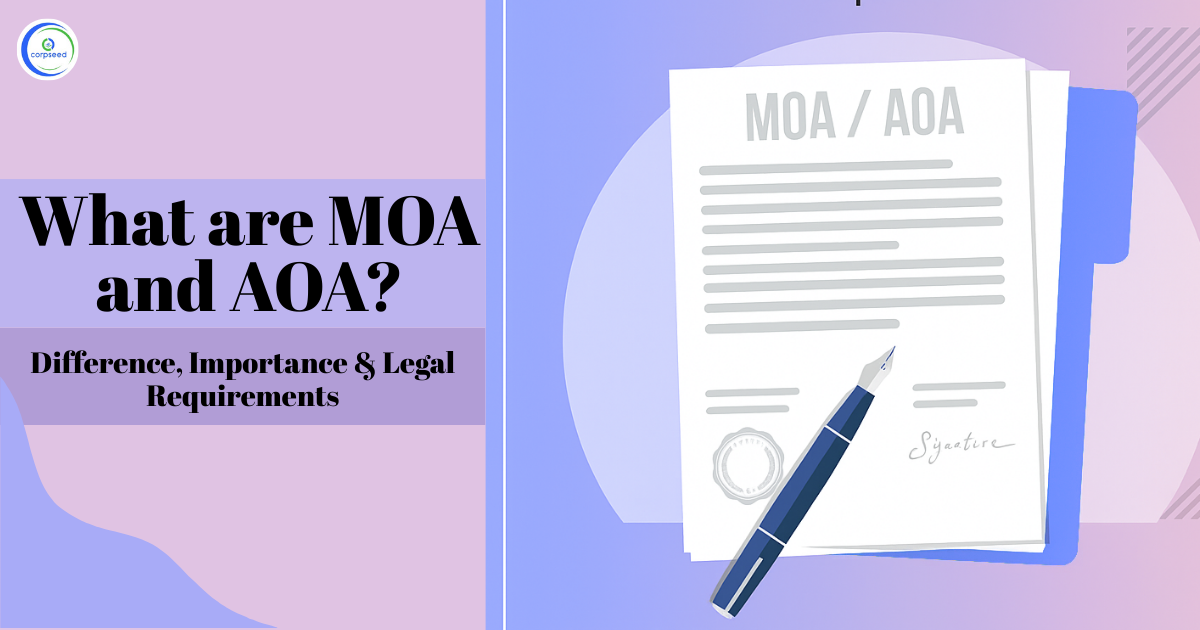Introduction: Company Management
What makes a company successful? What makes a company run on the right track? What decides the visions of a company? In simple words, who runs a company? If you’re on a quest to find answers to these questions, then let us assure you this is the exact right place for you. A company is run by its people, which is sometimes referred to as Company Management, which can include various stakeholders like the board of directors, chief officers, managers, shareholders, and whatnot. They all share the same dream and that is to drive a company with efficiency and fulfill its business objectives. If we go by the definition, then Company Management is nothing but a process that includes ‘planning, sorting out, guiding and controlling the efforts of company members and of utilizing all company resources to fulfill stated company targets.’
Table of Contents
--------------Blog Contact Form-------------
To put it simply, we can think of management of the company as the process of organizing and coordinating the company's business activities. Here, the main motive of it remains to keep track of and control the action and performance of the company, and at the same time, to make employees realize their full potential and provide them with the right guidance that can benefit the company in both short and long run. Today, with this article, we are going to discuss everything you need to know about Company management, including its role and responsibilities.
Company Management - Role and Responsibilities
The very first thing we need to understand here is that Company Management is not a new process as its roots can be traced back hundreds of years before. Surprising, right? Well, take a look at the ancient civilizations and you will understand how astonishing the hierarchy of authority they had was. Still, don’t believe us? Okay. As per the studies, the Egyptians had advanced company management in place which used to deal with labour division, the hierarchy of authority, and teams. Now, it’s true today’s management of the company is quite different from that one, but this also proves that the need for it has always been there to avoid chaos.
Today’s Company Management involves the collaboration of everything, be it human, financial resources, materials, and last but not least, data. Well, what are all these for? To run the company on the track that can help it achieve its targets and great heights of success. It creates a path to run day-to-day business operations with maximum efficiency and productivity. What would happen if there were no company management in place? You know the answer we guess, a situation of Chaos! Company Management, also sometimes known as Business Management, involves several stakeholders, which roles and responsibilities we are going to discuss one by one below.

Roles and Responsibilities of Shareholders
Holders of shares of a company are known as shareholders and if we come to their roles, they can influence, or we should say, control the company operations to a great extent and the reason behind this is the power they have to appoint senior management employees. That’s why we see shareholders usually get their representation by directors at the board meetings. Not just this, they also do have the power to be present and vote at the yearly general body meeting, where they can pass resolutions by voting in their shareholder capacity.
Board of Directors - Roles and Responsibilities
Just as we have discussed above, shareholders have the power to appoint a Board of Directors with the motive to set and influence company management. However, while selecting the directors, certain conditions must be followed by the shareholders, which are as follows:-
- If the business structure of the company is ‘Public Limited,’ then the minimum number of directors required to run it is three.
- If the business structure of the company is Private Limited,’ then the minimum number of directors required to run it is two.
- If the business structure of the company is ‘One Person Company,’ then the minimum number of directors required to run it is one.
After the directors come to the managing director, which the board of directors selects by a majority of votes cast. Apart from handling the company’s general affairs, the managing director, also shortly known as MD, also picks senior officers and managers related to the domain of company management with the help of other directors.
The major Role and Responsibilities of the Directors are as follows:-
- Act in the best interest of the company.
- Not to misapply the company's assets.
- Not to make secret profits
- To attend board meetings
- Not to exceed powers prescribed under the Articles of Association
- To keep the confidentiality of the company’s information
- To not permit conflict of interest
Roles and Responsibilities of Officers
Next in the hierarchy is the officers, who are appointed by the Board of Directors to fill high-level positions within the company. Unlike directors who are required by statute to be appointed, the officers are not required to be appointed by statute, which means their appointments depend on the whim of the directors.
Usually, under company management, the followings types of officers come into play:-
Chief Executive Officer
Under the ‘Officer’ category, the Chief Executive Officer, commonly referred to as CEO, comes at the top. He is required to report directly to the company’s Board of Directors and to whom, he is also ultimately accountable to. Now when it comes to the responsibilities of a CEO, they can include planning and implementing the company’s business strategy, allocating resources, and gathering and controlling the executive team. The significance of this position can be acknowledged by the fact that the person holding it is often held responsible for the ultimate success or failure of a company.
Chief Operating Officer
The Chief Operating Officer or Chief Operations Officer comes next to the CEO within the company management. This individual designs and implements business policies to keep up the company’s vision. To put it more simply, he handles and oversees the ongoing operations of a company, alongside keeps coordinating with the heads of the departments to support their work better.
Chief Financial Officer
The Chief Financial Officer, also referred to as CFO by people in the business world, is an officer that handles and manages the finance-related functions of the company, including financial planning, financial risk management measures, bookkeeping, and financial reporting.
Other key responsibilities of the person holding this position are to track cash flow and examine the company’s financial performance and where it is lacking and at the same time, propose strategic directions.
Chief Technology Officer
Next on the list is the CTO (Chief Technology Officer), whose primary responsibilities are to keep a close watch on the entire technology department of the company and devise relevant policies. The maximum focus of the person holding this position is on the ways to integrate business demands and needs into IT (Information and Technology) planning and operations.
Chief Marketing Officer
As the name itself suggests, the Chief Marketing Officer (Also known as Chief Branding Officer) is an executive officer responsible for handling marketing and advertising activities in a company.
Chief Legal Officer
A Chief Legal Officer is a company’s top legal executive, who assists the company mitigates its legal risks by providing the company's other officers and board members with his expertise on any major legal and regulatory issues the company faces, such as litigation risks.
Roles and Responsibilities of Managers
Next on the list is the Managers, who most of the time directly to the chief officers that we have mentioned above. If we talk about their role and responsibilities concerning the management of the company, then they depend on the position of a manager. Let’s take a look at the list of responsibilities a manager can follow:-
- Accounts Manager:
The primary responsibility of an Account manager is bookkeeping or in simple terms, we can say, managing the books of a company.
- Recruitment Manager
As the name itself suggests, the primary responsibility of a Recruitment Manager under Company Management is setting up interviews of eligible candidates and hiring the best among them to fill the vacant position within a company.
- Technology Manager
The role of a Technology Manager is to develop the products and services of the company.
- Store Manager
A Store Manager keeps a check on the inventory of a company and maintains its stock.
- Regional Manager
A Regional Manager is an employee, whose responsibility is to keep an eye on operations for regional locations, branches, or sales teams.
- Functional Manager
The prime role of a Functional Manager is to oversee employees on a specific team who have distinct work skills and resources with the motive to fulfill the company's goals.
Conclusion
One of the main ingredients that go into making a company successful is strong company management. The dedication and commitment of employees indeed matter a lot but without the right guidance, the situation most likely reaps unfruitful results. It is the company management and the hierarchy of responsibilities and roles that ultimately determine the path on which the company is going to walk. To understand its significance, you can think of business management as the captain of a ship, whose role is to keep the shop running smoothly and make the journey as great as possible.
This portion of the site is for informational purposes only. The content is not legal advice. The statements and opinions are the expression of author, not corpseed, and have not been evaluated by corpseed for accuracy, completeness, or changes in the law.
BOOK A FREE CONSULTATION
Get help from an experienced legal adviser. Schedule your consultation at a time that works for you and it's absolutely FREE.









